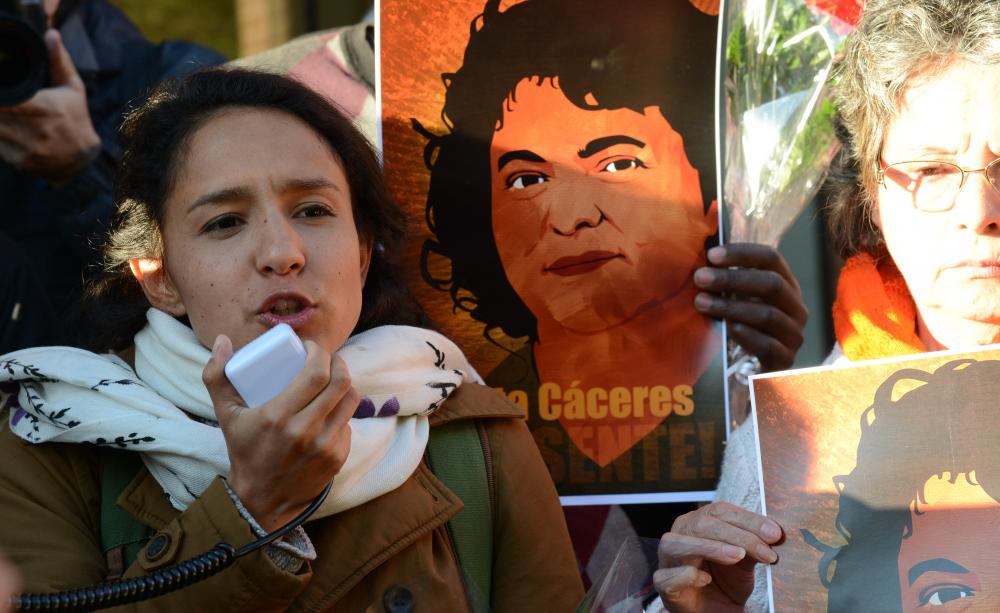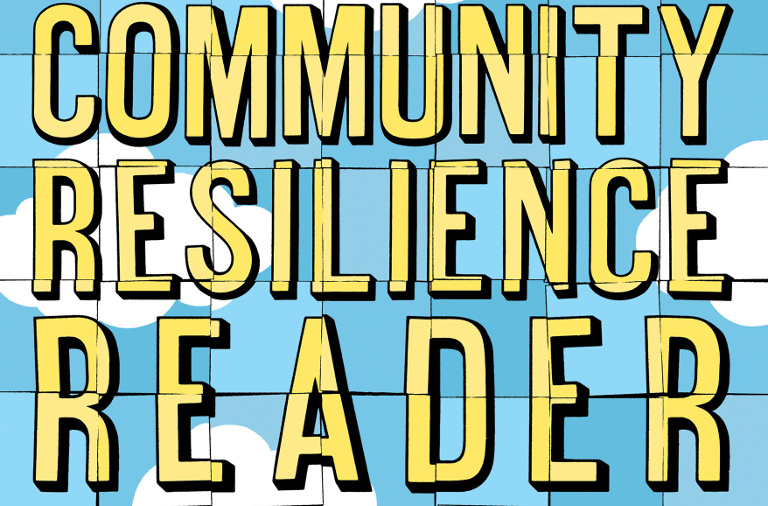Once a month, we put together a list of stories we’ve been reading: things you might’ve missed or crucial conversations going on around the web. We focus on environmental and social justice, cities, science fiction, current events, and political theory.
We’ll try to include articles that have been published recently but will last, that are relatively light and inspiring, and are from corners of the web that don’t always get the light of day. This will also be a space to keep you up to date with news about what’s happening at Uneven Earth.
In June, we read stories about new political strategies, decolonial re-imaginings, community resilience, and revolutionary ideas around the world. We also included articles about the escalating climate crisis and the root causes of climate and environmental injustice.
Uneven Earth updates
The team expands: Anna, who has been working on these newsletters for the past 6 months, is now on board as a new editor at Uneven Earth!
Science Fiction Belgrade | Link | Imagining different realities in the works of Enki Bilal and Aleksa Gajić
The promise of radical municipalism today | Link | Politics is about bringing people together and taking control of the spaces where we live
Science fiction between utopia and critique | Link | On different perspectives used in science fiction narratives, situated knowledge, and how discontent is useful
What’s it like for a social movement to take control of a city? | Link | For Barcelona En Comú, winning the election was just the first step
The swell | Link | “We were waiting to be accepted as refugees in Iceland, the only country left in the region with stable electricity from their geothermal resources, and the only place that would take UK citizens.”
News you might’ve missed
‘Carbon bubble’ could spark global financial crisis, study warns. Advances in clean energy expected to cause a sudden drop in demand for fossil fuels, leaving companies with trillions in stranded assets.
Meat and fish multinationals ‘jeopardising Paris climate goals’. New index finds many of the world’s largest protein producers failing to measure or report emissions, despite accounting for 14.5% of greenhouse gases.
World’s great cities hold key to fossil fuel cuts
San Francisco residents were sure nearby industry was harming their health. They were right.
State land grabs fuel Sudan’s crisis
Rural poor squeezed by land concessions in Mekong region: report
Andhra Pradesh to become India’s first Zero Budget Natural Farming state
India faces worst long term water crisis in its history. Droughts are becoming more frequent, creating problems for India’s rain-dependent farmers.
Trees that have lived for millennia are suddenly dying
The discovery of a map made by a Native American is reshaping what we think about the Lewis & Clark expedition. “We tend to think that [Lewis and Clark] were traveling blind into terra incognita. That is simply not true. Too Né’s map lifts the expedition’s encounter with the Arikara to new prominence.”
Why grandmothers may hold the key to human evolution. “While the men were out hunting, grandmothers and babies were building the foundation of our species’ success – sharing food, cooperating on more and more complex levels and developing new social relationships.”
How our colonial past altered the ecobalance of an entire planet. Researchers suggest effects of the colonial era can be detected in rocks or even air.
New politics
Tracking the battles for environmental justice: here are the world’s top 10
How the environmental justice movement transforms our world
5 ways indigenous groups are fighting back against land seizures
Occupy, resist, produce: The strategy and political vision of Brazil’s Landless Workers’ Movement
The town that refused to let austerity kill its buses
A sense of place. “There are many historical and modern day examples of how human beings, all over the world, have managed to meet the needs of locally adapted, place-based communities within the limits of their local environment.”
Roadmap for radicals. Mel Evans and Kevin Smith interview US-based organiser and author Jonathan Smucker, whose new book Hegemony How-To offers a practical guide to political struggle for a generation that is still ambivalent about questions of power, leadership and strategy.
How my father’s ideas helped the Kurds create a new democracy
Building autonomy through ecology in Rojava
Cooperation Jackson’s Kali Akuno: ‘We’re trying to build vehicles of social transformation’
A socialist Southern strategy in Jackson
Rebel Cities 6: How Jackson, Mississippi is making the economy work for people
This land is our land: The Native American occupation of Alcatraz. How a group of Red Power activists seized the abandoned prison island and their own destinies.
The environment as freedom: A decolonial reimagining
Interview: Decolonization towards a well-being vision with Pablo Solon
A world more beautiful and alive: A review of The Extractive Zone. From Ecuador, Perú, Chile, Colombia, and Bolivia, Marcena Gómez-Barris describes “submerged perspectives,” the decolonial ways of knowing that unsettle colonial relationships to land and the forms of violence they reproduce.
Feeling powers growing: An Interview with Silvia Federici
Municipalism: an Icarian warning
What would we eat if food and health were commons? – Inspiration from indigenous populations
Introducing ‘systems journalism’: creating an ecosystem for independent media
Seeding new ideas in the neoliberal city
Worker-owned co-ops are coming for the digital gig economy
Where we’re at: analysis
Letter to America, by Rebecca Altman. Everything is going to have to be put back.
Our plastic pollution crisis is too big for recycling to fix. Corporations are safe when they can tell us to simply recycle away their pollution.
How the UN’s Sustainable Development Goals undermine democracy
The remaking of class. “Class is contaminated water and children with chronic pain and fatigue. It is living downhill of the pond where fracking fluids are stored.”
Richard Powers: ‘We’re completely alienated from everything else alive’
The Enlightenment’s dark side. How the Enlightenment created modern race thinking, and why we should confront it. And a brief history of race in Western thought.
Puerto Rico is a “playground for the privileged”: Investors move in as homes foreclose & schools close. While healthcare, the public school system and infrastructure in Puerto Rico are flailing nine months after Hurricane Maria ravaged the island, wealthy investors have descended on the island to turn a profit. An interview with Naomi Klein and Katia Avilés-Vázquez, a Puerto Rican environmental activist.
How climate change ignites wildfires from California to South Africa
Feudalism, not overpopulation or land shortage, is to blame for Hong Kong’s housing problems
When New Delhi’s informal settlements make way for something ‘smarter’
The left in Syria: From democratic national change to devastation
A new era of uranium mining near the Grand Canyon? With scant data on risk, Republicans push to open a ‘perfect’ mining opportunity.
Rent strikes grow in popularity among tenants as gentrification drives up rents in cities like D.C.
Increased deaths and illnesses from inhaling airborne dust: An understudied impact of climate change.
‘Processing settler toxicities’ part 1 and part 2. An Indigenous feminist analysis of the connections between industrial capitalism and colonialism, imperialism, and the pollution and destruction of human and nonhuman worlds.
A History of the World in Seven Cheap Things review – how capitalism works
Anthropocene? More like ‘Capitalocene’. Jason W. Moore on the human impact on the world ecology. “My hope is that this theoretical research may provide useful insights for the social movements around the world that are fighting not only the effects, but especially the root causes of climate change.”
Carbon Ironies: William T. Vollmann on the hot dark future. A review of William T. Vollmann’s Carbon Ideologies—a book that is rightly sarcastic and pessimistic about the prospects of “solving” the problem of climate change but stuck in the false either/or choice between solving everything and doing nothing whatsoever, argues Wen Stephenson.
Patterns of commoning: Commons in the pluriverse. An essay by Arturo Escobar.
The mask it wears. Pankaj Mishra reviews and compares the propositions about how to work for equality in The People v. Democracy: Why Our Freedom Is in Danger and How to Save It by Yascha Mounk Not Enough: Human Rights in an Unequal World by Samuel Moyn.
Just think about it…
Laziness does not exist, but unseen barriers do
The Transition Towns movement… going where? A critique.
The dark side of nature writing. The recent renaissance in nature writing also revives an overlooked connection with fascism.
Minimum wage? It’s time to talk about a maximum wage
It takes a village, not a European, to raise a child. White people, through systematic oppression, actively create, profit from and maintain a market that institutionalizes children throughout Africa.
The unbearable awkwardness of automation
The power of giving homeless people a place to belong
Sci-fi and the near future
Resources
The community resilience reader. Essential resources for an era of upheaval, available for free.
Visualizing the prolific plastic problem in our oceans
Want to receive this as a newsletter? Subscribe here.






